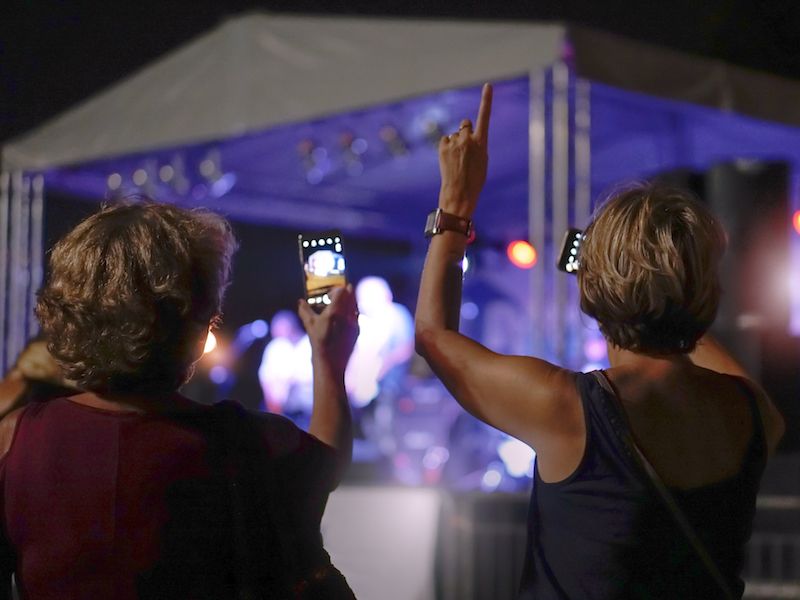
Summer is finally here, and you’re ready for all that fun we’ve been looking forward to: going to the beach, relaxing by the pool, and injured hearing? You could find yourself in external scenarios or exposed to other loud sounds this summer that can be hidden dangers to your hearing. Any sounds above 80 decibels can damage your hearing, while permanent loss of hearing can happen in swimming pools or other bodies of water. You have to take precautions and be aware of your environment so that you can keep your hearing safe this summer. Keep on reading to identify the summer’s six hidden dangers to your hearing.
Use Hearing Protection at Concerts
Summer is concert time, but even if you go to an outdoor venue, you still should protect your ears. Live music can have volumes over 90 decibels, even at outside shows, which is inside of the danger zone of hearing loss. That’s the reason it’s always a good idea to wear earplugs regardless of whether you’re going to a show indoors or outdoors. Earplugs dampen the sound while still enabling you to hear and get into the music. If you’re going to a concert with young children, consider buying them a heavy duty pair of earmuffs because children have more vulnerable ears than adults.
It’s Not Just Loud at Fireworks
Honestly, there are a lot of reasons to avoid fireworks in the summer. We’re not talking about the skilled 4th of July fireworks show, we mean the backyard fireworks which every summertime cause hundreds of injuries. As well as causing hand injuries, loss of sight, and home fires, personal fireworks can also cause serious damage to your ears since they are known to get to volume levels of 155 dB. This 4th of July, leave the fireworks to the professionals and enjoy the display from a safe and sound distance.
Hearing Loss Can be Caused by Lawnmowers
If you love to take care of your yard, mower, edger, and trimer are your best friends. But have you ever noted how off your ears feel after you get done, how everything sounds muffled or your ears are ringing? That’s because the lawn tools, which are constantly loud, impact your hearing over time. If you’ve ever seen landscapers, you most likely have seen them using hearing protection, you should take a hint from them and wear earmuffs or earplugs next time you attend to your lawn to make certain your hearing stay healthy.
How to Safeguard Your Hearing at Beaches And Pools
Huge numbers of people suffer from swimmer’s ear every summer, which happens when the ear canal traps water which is high in bacteria. Swelling and painful earaches result when the bacteria infects the ear. These bacteria are commonly found in lakes and rivers but sometimes also live in hot tubs and pools if the water is not correctly managed. No irreversible injury should occur if you get your ears checked out by a hearing professional. To be safe, when your swimming in your pool, use special swimmers earplugs and keep the chemical balance precise to minimize the possibility of getting swimmers ear.
Water Sports And Boats
If you love the water, the summer season is beach and boating time for you. But, jet ski and boat engines can be noisy,they can get up to over 100 decibels. Permanent hearing damage can happen after about 15 minutes of exposure to that kind of noise. Again, it’s probably in your best interests to use a couple of throw away, foam earplugs while you’re out on the water to make certain you don’t unwittingly injure your ears.
Car Races Can Hurt Your Hearing
It doesn’t make a difference what type of auto racing you like, motorcycle, midget, Formula 1, drag racing or stock cars. If you attend many auto-races this summer, they all pose a peril. It’s calculated that volume levels can go beyond 120 decibels at many races, which is definitely inside the danger zone for hearing damage. Earplugs are your best bet at these races, although your children should definitely use the earmuffs we mentioned earlier. Because you may not get to enjoy the sounds of any races in the future if you don’t.